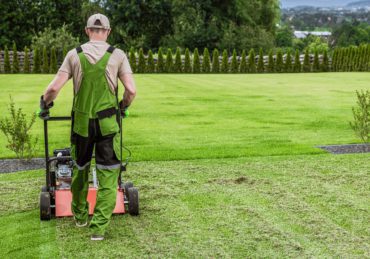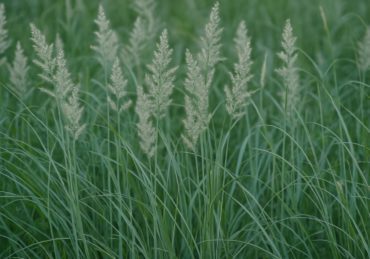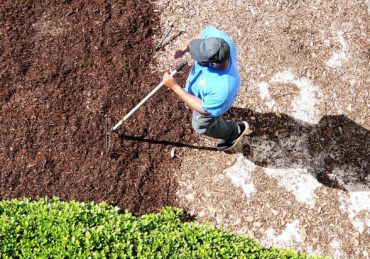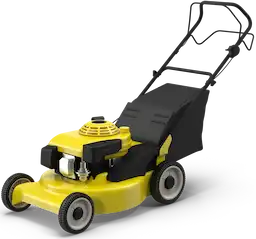When tackling stubborn weeds, the juxtaposition of selective and non-selective herbicides offers a strategic advantage. Selective herbicides target specific weeds without harming desired plants, while non-selective herbicides eradicate all vegetation they contact. Natural alternatives like vinegar, boiling water, and salt can dehydrate weeds effectively. Pairing these with manual methods like pulling weeds by the root and mulching provides a thorough approach. Curious about achieving lasting weed control? Let’s investigate the techniques further.
Why Weeds Keep Coming Back
You might underestimate how soil conditions contribute to the persistent return of weeds. Poor soil drainage, low nutrient levels, or imbalanced pH can create environments where weeds thrive more easily than desired plants. By understanding and adjusting these soil factors, you can notably reduce the likelihood of weeds re-establishing themselves in your garden or lawn. As a gardener, adjusting these conditions early can reduce future infestations.
Soil Conditions That Encourage Weed Growth
Understanding soil conditions that encourage weed growth is essential for effective weed management. Common lawn weeds thrive in disturbed soils abundant in nutrients. If your soil and grass experience poor drainage or compaction, weeds benefit from retained moisture. Low organic matter disrupts nutrient balance, favoring weeds. Furthermore, exposed bare soil from erosion and non-optimal pH levels further enable weeds to outcompete desired plants.
Easily hire the best lawn & landscape pros working in your neighborhood.
Natural Ways to Kill Weeds Permanently

To effectively eliminate weeds naturally, consider using white vinegar with 20% acetic acid concentration, which desiccates annual weeds under sunny conditions. Boiling water provides a simple solution by thermally destroying plant tissues, while salt and baking soda can dehydrate and inhibit weed growth when applied with care to avoid soil damage. Furthermore, crafting DIY weed killer recipes and utilizing ground cover plants help starve weeds of essential sunlight and nutrients, offering a sustainable, eco-friendly approach to long-term weed control.
Using Vinegar as a Natural Weed Killer
While seeking a natural method to tackle pesky weeds, vinegar emerges as a potent solution due to its high acetic acid content, especially in horticultural vinegar, which typically has a concentration of 20% or more. Be sure to dilute the vinegar if applying near sensitive plants. To effectively kill weeds, spray it on hot, sunny days, targeting leaves directly. Be cautious, as vinegar’s acidity can alter soil pH and harm beneficial microorganisms if overused.
Boiling Water, Salt, and Baking Soda
Harness the power of common household items like boiling water, salt, and baking soda to tackle weeds effectively and naturally. Boiling water cooks plant tissues, while salt dehydrates cells, helping kill plants at the root. Baking soda disrupts water absorption. For best results, apply these on sunny days. Combine boiling water with salt to penetrate tissues efficiently.
| Method | Effectiveness |
|---|---|
| Boiling Water | Cooks plant tissues |
| Salt | Dehydrates plant cells |
| Baking Soda | Disrupts water absorption |
| Sunny Days | Maximizes impact |
| Combination | Enhances penetration |
DIY Weed Killer Recipes for Home Use
After exploring household items like boiling water, salt, and baking soda for natural weed control, let’s examine DIY weed killer recipes that offer a sustainable path to permanently eliminating weeds. Mix 1 gallon of vinegar (20% acetic acid) with 1 tablespoon of dish soap to create an effective diy weed solution. Then spray the mixture generously on unwanted growth to ensure full coverage. For stubborn weeds, inject concentrated solutions directly into roots for a higher chance to kill the entire plant and prevent regrowth.
Ground Covers That Starve Weeds
Although chemical treatments can offer quick solutions, using ground covers presents a more sustainable method to permanently kill weeds. Ground covers like clover, creeping thyme, and vinca effectively compete for sunlight, nutrients, and water, creating a dense mat that inhibits weed growth. This weed control method reduces herbicide dependency, enhances soil health, and promotes biodiversity, ensuring a resilient garden ecosystem. Consistent maintenance maximizes their weed-suppressing capabilities.
Chemical Options That Get the Job Done Permanently
When considering chemical options for permanent weed control, it’s essential to understand the differences between selective and non-selective herbicides, as well as systemic and contact varieties. Selective herbicides target specific weeds while sparing desired plants, whereas non-selective herbicides eliminate all vegetation they contact. Systemic herbicides, which penetrate and kill the root systems, are important for permanent results, and pre-emergent herbicides can prevent weed growth before it even starts.
Easily hire the best lawn & landscape pros working in your neighborhood.
Selective vs. Non-Selective Herbicides
To effectively tackle unwanted vegetation, understanding the distinction between selective and non-selective herbicides is essential. Selective herbicides target specific weeds like broadleaf or grassy types, sparing your desired plants and ideal for lawn care. Non-selective herbicides, however, indiscriminately kill all vegetation they contact, perfect for clearing areas but requiring caution. Knowing their differences helps prevent unintended damage and guarantees effective weed control for any gardener.
Systemic vs. Contact Herbicides
Understanding the distinction between systemic and contact herbicides is essential for efficient and permanent weed control. Systemic herbicides penetrate the plant and move internally to destroy it, including the roots, ensuring lasting results. In contrast, contact herbicides act on the plant surfaces they touch, requiring repeated applications and potentially leaving roots intact. Choose systemic herbicides for thorough eradication, while contact herbicides offer quick, surface-level effects.
Pre-Emergent Herbicides for Prevention
Although effective weed management demands a thorough approach, pre-emergent herbicides provide an essential preventive measure by halting weed seeds before they can germinate. Apply them in late winter or early spring to prevent weeds, targeting annuals like crabgrass. These herbicides establish a lasting chemical barrier in the soil. Remember, they won’t eliminate existing weeds, so clear established plants first for best results. Timing is key.
Kill Weeds Permanently With Long-Term Manual and Organic Methods

To achieve permanent weed control using manual and organic methods, you should focus on techniques like pulling weeds by the root to guarantee complete removal, especially when the soil is damp. Employ soil solarization by covering moist soil with clear plastic to effectively kill weed seeds and seedlings without chemicals. Furthermore, mulching and smothering with organic materials such as wood chips can not only prevent regrowth by blocking sunlight but also enrich the soil, promoting healthier plant development.
Pulling Weeds by the Root
When it comes to permanently eliminating weeds, pulling them out by the root is essential. For effective removal, pull weeds when the soil’s moist to facilitate root extraction. Use tools like a weed popper or flathead screwdriver to tackle existing weeds efficiently. Consistently monitor and pull young weeds before they sprout or seed. This approach, combined with mulching, reduces weed populations and prevents regrowth.
Soil Solarization and Weed Torching
After manually pulling weeds by the root, consider employing soil solarization and weed torching for a sustainable, chemical-free approach to long-term weed control. Cover moist soil with clear plastic during hot weather to heat it above 140°F, effectively killing weed seeds. For immediate results, use weed torching on dry, sunny days, applying direct flame to annual weeds and young perennials, causing plant cells to burst and kill the plants completely.
Mulching and Smothering to Stop Regrowth
Though manual weeding can be effective, integrating mulching and smothering techniques can greatly enhance your weed management strategy for long-term success. Apply a 3-4 inch layer of mulch to block sunlight, suppress germination, and enrich soil over time. Use smothering materials like cardboard to deprive weeds of light and air. Regularly replenish these layers to maintain effectiveness and considerably reduce regrowth potential.
Lawn Weed Control Tips to Stop Weeds From Coming Back
To prevent weeds from making a return, focus on aerating your lawn to improve soil oxygenation and root growth. Fertilize smartly, providing essential nutrients without over-fertilizing, which can encourage weed growth. Furthermore, mow at the proper height to maintain a dense grass canopy that limits sunlight reaching weed seeds.
Aerate, Fertilize, and Mow Smart
While effective weed control requires a strategic approach, focusing on soil health and grass maintenance can greatly reduce weed recurrence. Aerate your lawn to enhance water and nutrient absorption, strengthening grass against weeds. Fertilize regularly with balanced nutrients to form a dense canopy that prevents weed germination. Smart mowing at 2.5 to 3.5 inches maintains strong roots, limiting sunlight to weeds, hindering their growth.
Improve Soil Health and Drainage
Enhancing soil health and ensuring proper drainage form the backbone of a successful long-term weed management strategy. Add organic matter like compost to improve soil fertility and support robust plant growth, outcompeting weeds. Regularly aerate to combat soil compaction and enhance drainage, preventing waterlogged conditions that encourage weed seeds. Maintain ideal pH levels and mulch to regulate soil temperature and suppress weed germination.
Want Help Killing Weeds Permanently? Let LawnGuru Do the Dirty Work
How can you assure weeds are permanently eradicated without the hassle? Let LawnGuru handle it. Our pros use natural weed killers to kill the plants effectively, targeting root systems with precision. By combining techniques like soil solarization and direct herbicide injection, we assure long-term control. Regular maintenance, including mowing and fertilization, further prevents weed establishment, making LawnGuru the ideal choice for a weed-free lawn.





